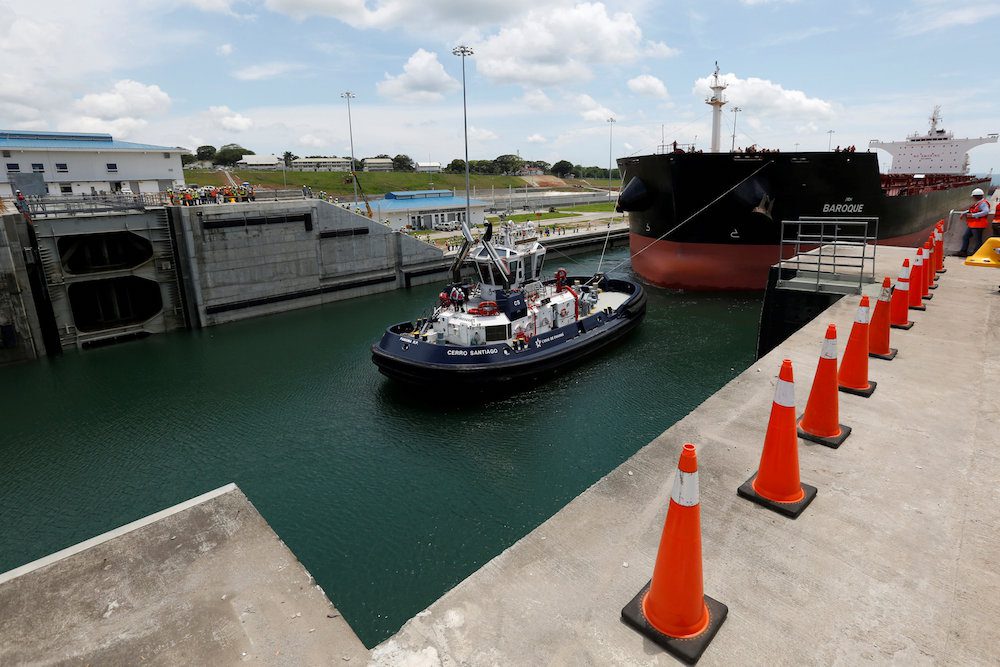A tugboat pulls a Post-Panamax cargo ship during the first trial run at the new sets of locks on the Atlantic side of the Panama Canal, in Panama City, Panama June 9, 2016. REUTERS/Carlos Jasso
 By Elida Moreno PANAMA CITY, Dec 20 (Reuters) – In April last year, the 148-tonne tugboat Cerro Santiago collided with the U.S. Coast Guard vessel Tampa while passing through the Panama Canal after the captain of the tug fell asleep.
By Elida Moreno PANAMA CITY, Dec 20 (Reuters) – In April last year, the 148-tonne tugboat Cerro Santiago collided with the U.S. Coast Guard vessel Tampa while passing through the Panama Canal after the captain of the tug fell asleep.
No one was injured, but the repairs to the Tampa cost $170,000, said a report by the U.S. National Transportation Safety Board, a government agency.
The risk of such incidents is growing as fatigue plagues tug operators from long shifts, according to a report published this month commissioned by Panama’s captains union.
The Panama Canal Authority disputes the findings.
Since the Panama Canal opened a new set of locks in 2016, some captains have been covering long shifts.
The report said the system is negatively affecting crews’ health on the canal, which handles 5 percent of world trade.
The study, which included interviews with 55 captains, a third of the total working at the facility, is the union’s most recent push for a different shift system, crew members said.
“We’re worried about the deterioration of the captains’ health and fear another accident might happen,” captain Ivan De La Guardia told Reuters.
The union said it had sent 15 letters to the canal authority urging action, without receiving an answer.
De La Guardia, one of the union’s leaders, said that since July 1 there have been seven tugboat accidents. None were serious, but all involved captains falling asleep, he said.
When the new locks first opened, two tugboat captains were assigned to each maneuver in the canal. But the canal authority decided in mid-2018 that one captain would be enough after a period of “adaptation” ended.
That has implied longer shifts and more pressure at work, captain Roberto Feurtado said.
Jorge Quijano, administrator of the Canal authority, told Reuters that operational rules for tugboats demand only one captain, two crew and one machinist.
“The work that is being done is not generating any fatigue,” Quijano said, calling the operations safe and the work environment “appropriate.”
The authority says the accident rate is below 1 percent at the canal, which has over 13,000 transits every year.
The new set of locks requires tugboats to accompany vessels passing through the waterway during the entire transit. Maneuvers can take up to 10 hours.
Nearly one in three captains interviewed for the report said they have worked up to 20 hours in a single shift, and six of them reported falling asleep at work. (Reporting by Elida Moreno in Panama City additional reporting by Diego Ore and Marianna Parraga in Mexico City Editing by Leslie Adler)
(c) Copyright Thomson Reuters 2018.

 Join The Club
Join The Club











